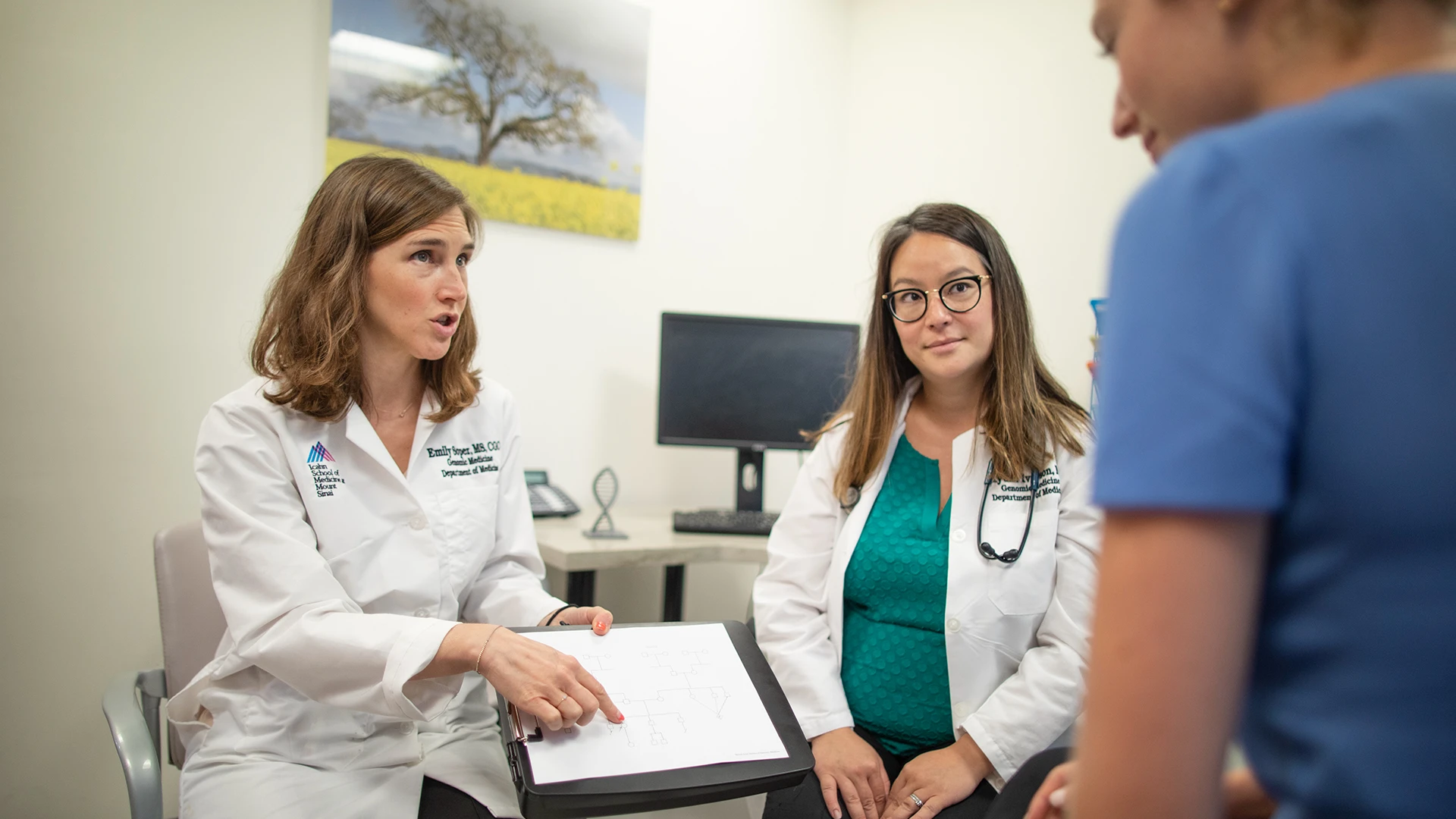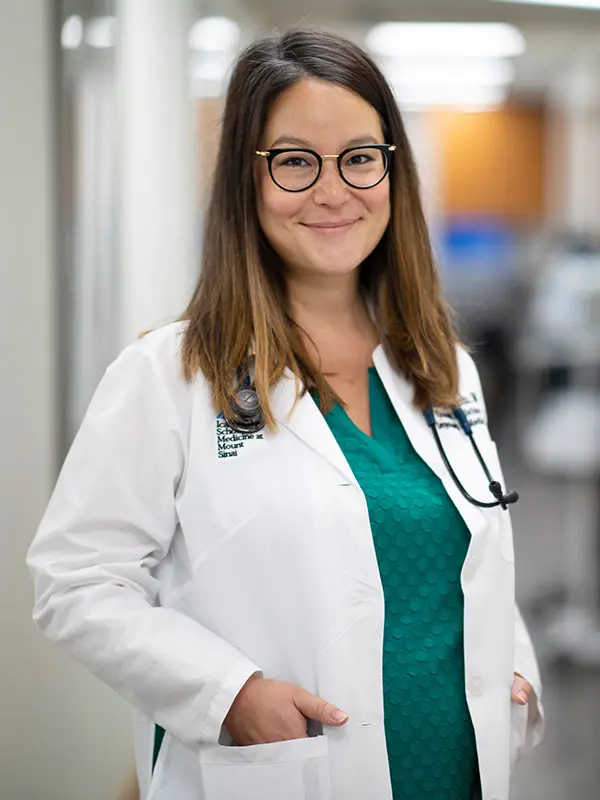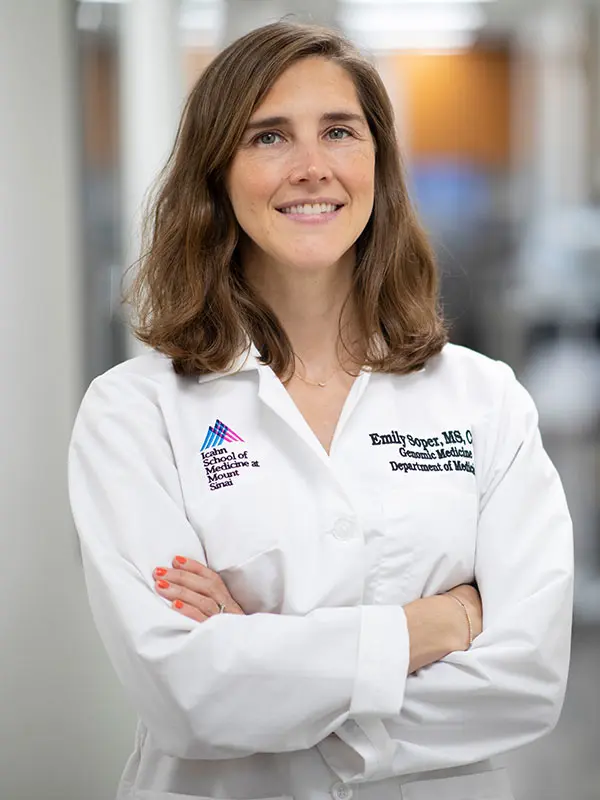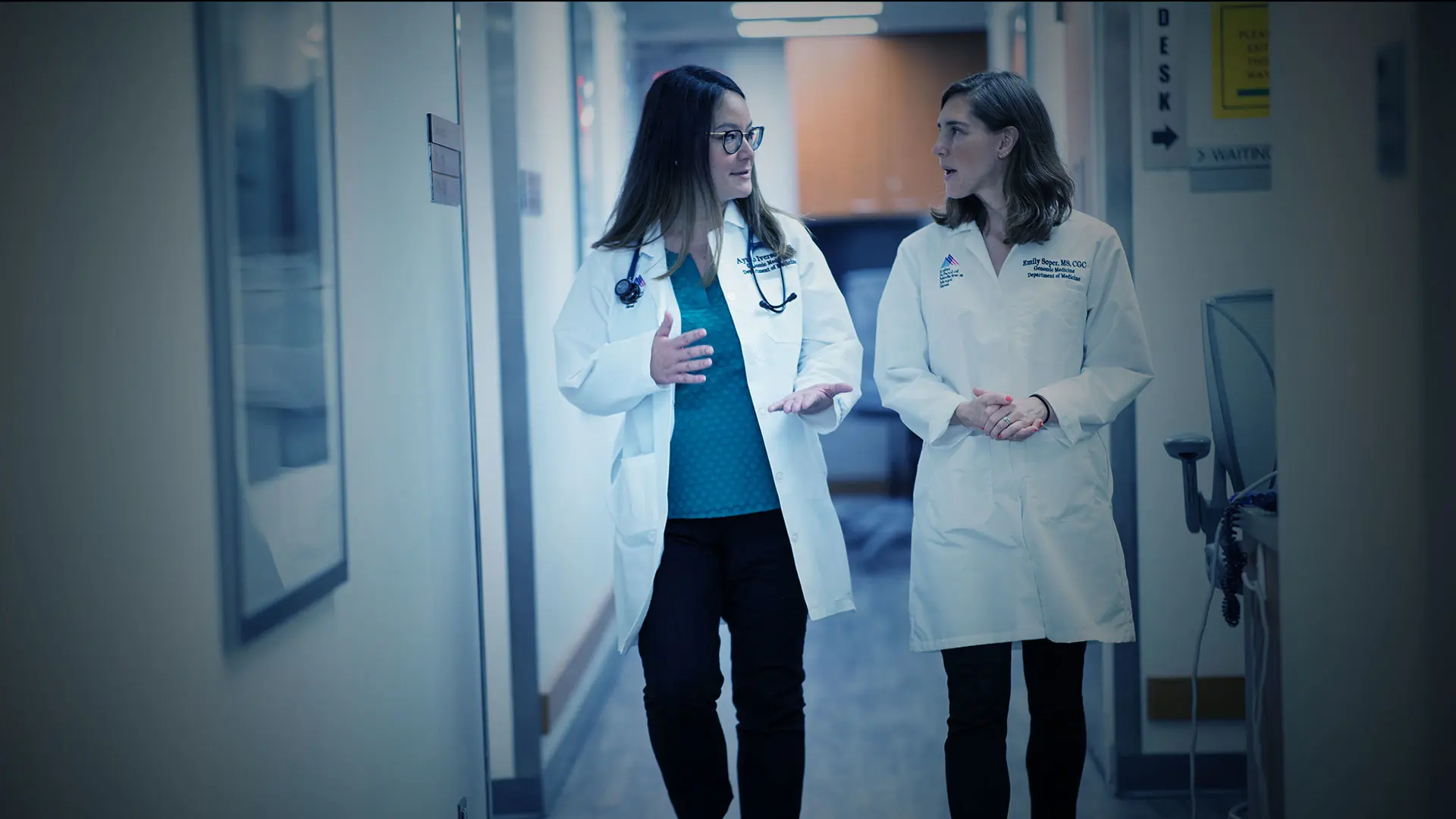Related Article
As genetic testing moves beyond the realm of rare disease to mainstream disorders such as cardiovascular disease and cancer, the Division of Genomic Medicine’s Genomic Health Clinic is emerging as a vital ally to people who hope to understand the risks to themselves and family members from information embedded in their genome.
The only advanced service of its type in New York City and one of a handful in the country, the Clinic connects patients with a highly skilled medical geneticist-genetic counselor team to identify potential health hazards. If a genetic risk is found, the team refers the individual to appropriate physicians within the Mount Sinai Health System for monitoring or treatment before it becomes a serious issue.
Patients have traditionally been referred for a genetic evaluation when they have a strong personal or family history of certain diseases. But with genetic testing now widely accessible through direct-to-consumer products such as 23andMe and others, more people can potentially benefit from a thoughtful analysis of their screening results or consideration of proactive genetic testing by genetic experts.
“We’re trying to help people recognize there may be subtle clues in their family history that help explain many common diseases from a hereditary standpoint,” says Emily Soper, MS, Instructor in Medicine at the Icahn School of Medicine at Mount Sinai and a genetic counselor at the Genomic Health Clinic. “That level of information can truly empower them to be much more proactive about their health—and not wait for problems to develop before they take action.”
Launched in 2020, the Clinic currently sees four to six new patients a week, though that number is poised to grow exponentially as genetic screening becomes more deeply woven into the fabric of routine health care. As the Clinic’s medical geneticist, Ayuko Iverson, MD, points out, the opportunities to address potentially troublesome conditions are as unlimited as the human genome itself.
“We often get referrals for people with a family history of thrombophilia; various cancers such as breast, pancreatic, and colon; and Alzheimer’s disease or dementia,” says Dr. Iverson, Assistant Professor of Medicine, and Genetics and Genomic Sciences, at Icahn Mount Sinai. “But there are genes that play a role in developing common diseases that we know are treatable or even preventable if caught early enough.”
The U.S. Centers for Disease Control and Prevention, for example, has identified three Tier 1 conditions associated with high genomic risk in 1 of every 75 people, though as many as 90 percent are unaware of the potential threat. Those conditions are hereditary breast and ovarian cancer, Lynch syndrome, and familial hypercholesterolemia. “Each of these conditions is actionable,” notes Dr. Iverson, “and if we detect any of them through genetic screening there are specific care management and surveillance guidelines that can be implemented.”

Emily Soper, MS, and Ayuko Iverson, MD, explain how genes could play a role in a patient’s family history of disease at the Genomic Health Clinic.
A visit to the Genomic Health Clinic typically begins with a review of the individual’s personal and family health history going back three or four generations, and a physical examination. Based on this evaluation, the genomics team then discusses genetic testing options with the patient—including any medically indicated tests as well as proactive screening—and what potential implications of testing should be considered. For patients seeking a better understanding of their response to certain medications, a pharmacist also reviews the patient's medication history and discusses pharmacogenetic testing to evaluate how their genes affect the body’s metabolism of medications. If the patient opts to proceed, a blood or saliva sample is taken and sent to a clinical testing laboratory for analysis. A second visit is then scheduled at which the patient receives the results along with counseling and, when appropriate, referrals to specialists such as a hematologist, cardiologist, endocrinologist, or oncologist. Other times, the genomic specialists may simply suggest that the patient confer with their primary care doctor.
Indeed, the Genomic Health Clinic is looking to expand its relationship with primary care practices within Mount Sinai, knowing they represent a major channel for preventive care and referrals. Other patients find their way to the Clinic through web searches.
“People often come in after having done a direct-to-consumer or commercial self-driven genomic test and want to know what it means for their health care,” explains Ms. Soper. “We’re able to interpret the data for them in terms of risk to not just themselves but their family. Many times, the greatest benefit we provide patients is just being able to walk them through the results and reassure them that something found in their test is not as worrisome as they had thought.”
Featured Faculty and Division Leadership

Ayuko Iverson, MD
Assistant Professor of Genetics and Genomic Sciences, and Medicine (General Internal Medicine, and Medical Genomics)

Emily Soper, MS
Instructor of Medicine (Medical Genomics)

Michael F. Murray, MD
Professor of Medicine; Chief, Division of Genomic Medicine
